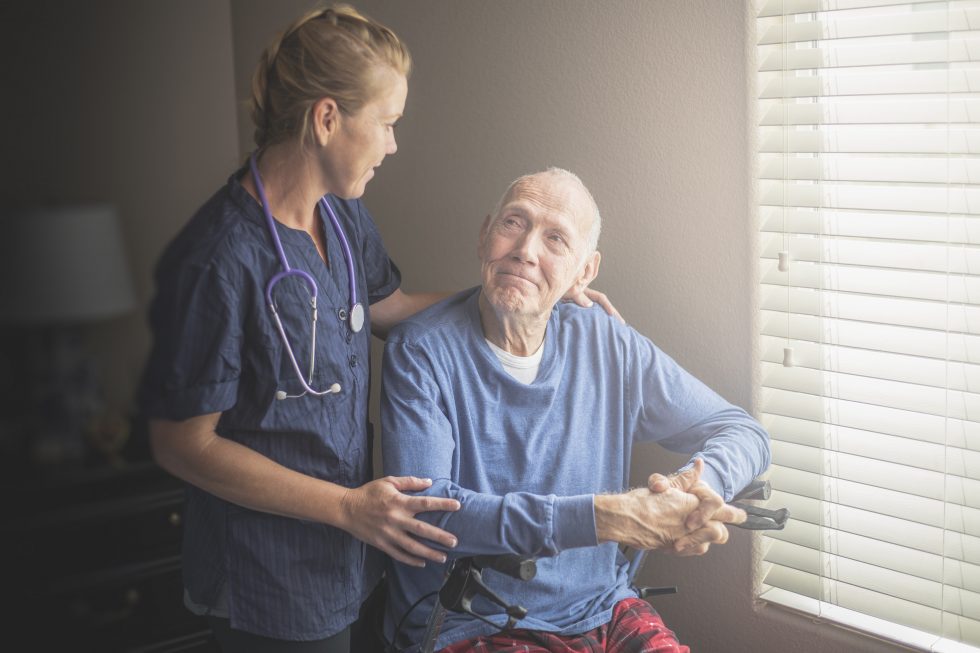By Edna Clifton, MBA, BSN, RN
When setting your career goals, it is helpful to engage a mentor. This is an individual is who is a seasoned professional that holds values similar to yours. This person can provide guidance for certifications and education you need to achieve your goals. They also can assist you in exploring available opportunities and financing
 Edna Clifton
Edna Clifton
I was fortunate to be able to attend a Bachelor's in Nursing (BSN) Program right after high school. I had a cousin who was a Nurse and served as my mentor. Her advice to me was to take the time to get my Bachelors early in my career as it would open opportunities in the future. I happily took her advice and completed my BSN.
I started my nursing career in a large teaching hospital that offered educational tracks to train us for specialty areas. I opted for the critical care track, specific to medical and coronary critical care. These courses provided me with the training needed for me to function effectively in these areas early in my career. After two years working in these areas, I had the opportunity to begin teaching nurses to prepare them to work in the critical care areas. I also developed a mentoring program that assisted new graduates to transition into the role of a professional nurse. Having the Bachelor and the expertise gleaned from continued education courses, opened opportunities to lecture at state and national seminars.
After 5 years of teaching, I began to become frustrated because I was teaching the ideal to students but the systems in which they worked needed to change and the only way that could happen was for me to move into administration where I could influence those changes. At that time the Bachelors was adequate to be eligible to take on an administrative position, However, it did not take long before that changed and to maintain that role a Masters was required. I began to explore programs that would best prepare me to continue in administration which was my professional goal.
In choosing how to advance my career, I explored several Master’s programs and evaluated how they could help me achieve my goal to broaden my business and finance experience to solidify my role as a nursing leader and an integral member of the executive team. I looked into master’s programs in nursing, business and public health. I began my studies in public health, but after taking several courses, I realized the curriculum did not offer the business and finance courses I felt I needed. So, I enrolled in a program to complete my Masters in Business Administration. I do admit this transition was quite challenging. The course of study was very different and difficult, but I knew this program clearly met my professional goals.
When I finished my Masters in Business Administration (MBA), I chose to move into a different healthcare setting. I began work at hospice. I was fortunate to meet their chief financial officer who saw the value of having a nurse with a business degree because of how the hospice Medicare benefit regulated payment for care their patients received. In this role as Director of Reimbursement, I had to dig into the Medicare regulations governing hospice payment and I had to educate insurance case managers to how hospice functioned and how it differed from home health. This role allowed me to apply my clinical and financial skills.
The MBA program also had s strong Quality Improvement component. After graduation, I kept in touch with the professor who taught the course. Since he knew my interest in this topic, he referred me to the local school system’s Quality Academy. This was a program that recruited business professionals to assist schools in applying for the state’s Sterling Award for quality and performance improvement. Since school administrators were not versed in the quality improvement process, business professionals were mentored to administrators to prepare them to fill this role in the future. I volunteered for 2 years and this experience opened doors for jobs in quality improvement. As a result, I moved to another hospice organization as their Director of Quality Improvement and Compliance.
Having the business, quality and nursing background, I chose to work for the Quality Innovation Network, Quality Improvement Organization (QIN-QIO) when the opportunity presented. In this role, I was charged with working with healthcare providers to review data and develop quality action plans to improve patient clinical outcomes, reduce readmissions and reduce costs. In this role, I was able to sharpen my skills in analyzing and presenting data to healthcare leaders throughout the state.
Throughout my career, I never passed up an opportunity to learn new skills through higher education and work or volunteer experience. Having done this opened doors, I never realized would be available. I encourage you to do the same.


I have several friends who experienced the same quandary when deciding on which route to pursue a Master’s degree in—clinical or business? Like you say, it’s so important to have clear goals in mind and also have a high-degree of self-awareness regarding strengths and opportunities. Knowing these things helps to make sure the right path is taken that is rewarding and gratifying! 🙂